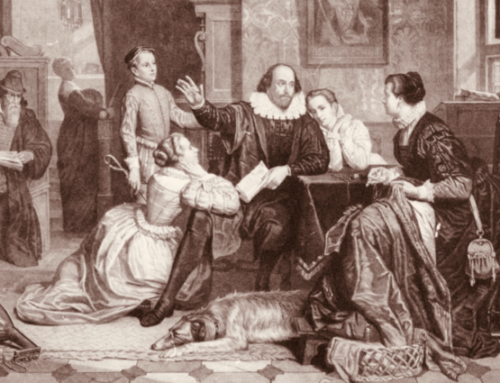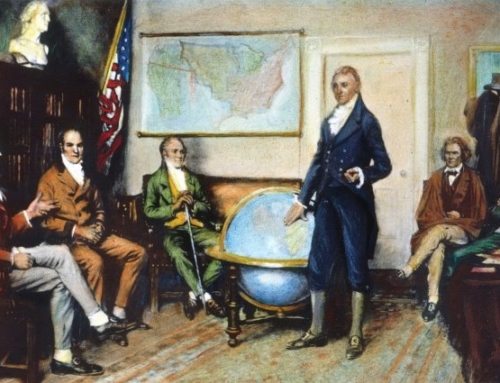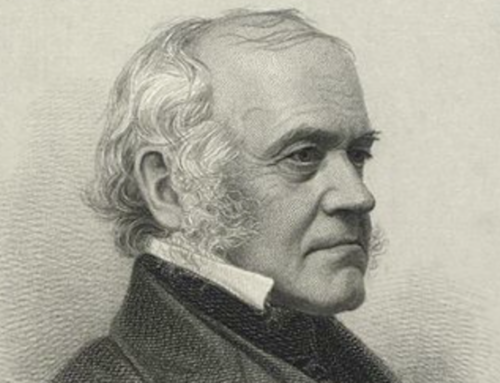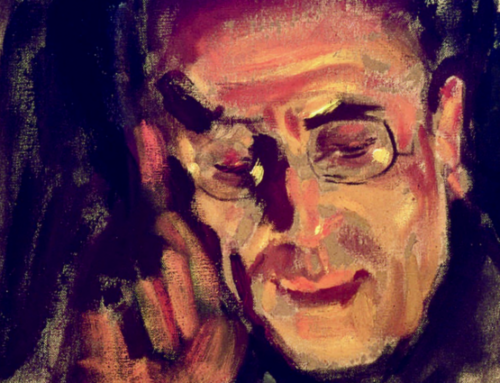 Simply speaking, literature works with the mode of thought most natural to the human mind—that is, thinking in images, comparisons, characters, speeches, and actions.
Simply speaking, literature works with the mode of thought most natural to the human mind—that is, thinking in images, comparisons, characters, speeches, and actions.
Every household of parents and children has a cast of distinct characters whose various performances become stories in the family. Our five-year-old grandson Andrew, for example, though a domestic terrorist by day, sang a beautiful solo of “Silent Night” on Christmas Eve. His older sister had me read Jack and the Beanstalk to her several times, even though I said Fee-Fi-Fo-Fum a little too savagely for her taste. Anyone engaged in managing other people thinks in characters and actions. Who is brave enough to risk the boss’s rage over something he does that hurts the company? What will Graves do to handle this slight? Did you see how Pritchett treated that woman? How do you think Klotka will react when we present this proposal to her? This way of thinking is so natural to us that we hardly consider it thought at all.
But Aristotle himself, the Philosopher, as Dante calls him, bases his account of virtue in the Nicomachean Ethics, not on a set of principles, but on the character and actions of the spoudaios, the serious man admired by those who want to exhibit similar traits, such as courage or prudence. Literature works through the depiction of character. At the beginning of the Iliad, only Achilles will stand up to Agamemnon when he brings down a plague on the entire army, and only Achilles suffers the mortal insult of the king. But Achilles also takes revenge. Through his mother, Achilles asks Zeus for the honor that Agamemnon has denied him, even though it will mean the deaths of many and the defeat of his own friends. Both men bring harm to their own army—but which is more noble, Agamemnon or Achilles? For anyone who has read the Iliad, the answer is obviously Achilles. Saying why takes the reader into the depth of the poem.
Again, later in the Iliad, the Achaians have been driven back inside their newly built wall, and the Trojans occupy the whole plain. Diomedes volunteers to find out how they are arranged and what their plans might be. Who does he want with him on this dangerous night raid? Nestor? Huge Ajax? Menelaos? No, he wants Odysseus—and so would you. The judgment is instantaneous. But if you had to tease it out, you would say that unexpected situations don’t rattle him, that he’s quick-witted and physically powerful, and that he’s a superb liar.
We naturally condense what a person says and does, as well as what other people say about him, into a single charged image of who he or she is. It can be wrong—it often is wrong or partial—and this possibility of error also forms part of what literature shows. Lear banishes the daughter who loves him most. Othello is so wrong about Desdemona, thinking that she has shamed him in his world of military honor, that he cannot let her live, but even as he kills her, he adores her, praises her, tries to save her from damnation. After he kills her, he discovers her innocence and cries,
Whip me, ye devils,
From the possession of this heavenly sight!
Blow me about in winds! roast me in sulphur!
Wash me in steep-down gulfs of liquid fire!
Othello embodies the intersection of many cultural complexities and condensed into a single figure, a single name that becomes a part of our thought capable of being revisited and explored. Like him, hundreds of other characters from literature become part of the way we think, as though we knew them personally: Clytemnestra, Penelope, Dido, Cordelia, Sonya.
When I teach, it never occurs to me to try to abstract a concept from characters like Raskolnikov, or Henry V, or Captain Ahab, as though they merely stood for something that could be more tidily handled on the conceptual level. A student learns Raskolnikov, not a concept that he stands for, and not really even “the character Raskolnikov” as though he were merely an exhibit of the novelist’s imagination. Knowing Raskolnikov—this young man more oppressed and tormented by thought than Hamlet—pulls the reader’s imagination into the rich social and spiritual context of Dostoevsky’s novel. Great characters, like people we have known deeply in our lives, become complex attractors that order and deepen daily understanding. Thinking through literature helps form judgment and right feeling—in fact, it helps us order experience itself, because the accuracy of its depictions can be constantly tested against people we know or might come to know.
Republished with gracious permission from Wyoming Catholic College‘s weekly newsletter.
The Imaginative Conservative applies the principle of appreciation to the discussion of culture and politics—we approach dialogue with magnanimity rather than with mere civility. Will you help us remain a refreshing oasis in the increasingly contentious arena of modern discourse? Please consider donating now.
The featured image is Raskolnikov and Marmeladov by Michail Petrovich Klodt (1874), based on the novel by F.M. Dostoevsky’s Crime and Punishment. It is in the public domain, courtesy of Wikimedia Commons.







Beautiful. Thank you, Dr. Arbery!
Loved this article, well said.
Another luminous and careful essay by Dr. Arbery. Always a delight.
Thank you, Dr. Arbery for igniting that fire for going back to some of the literature I once enjoyed, and others I failed to inhale.